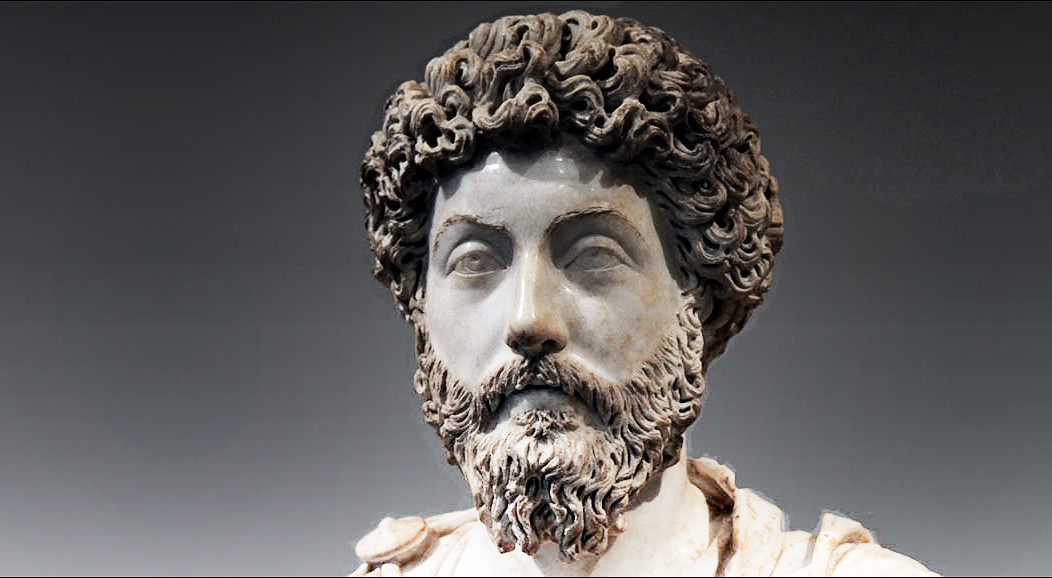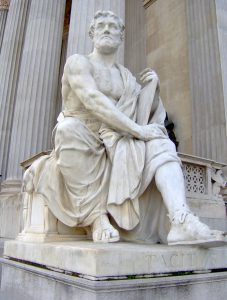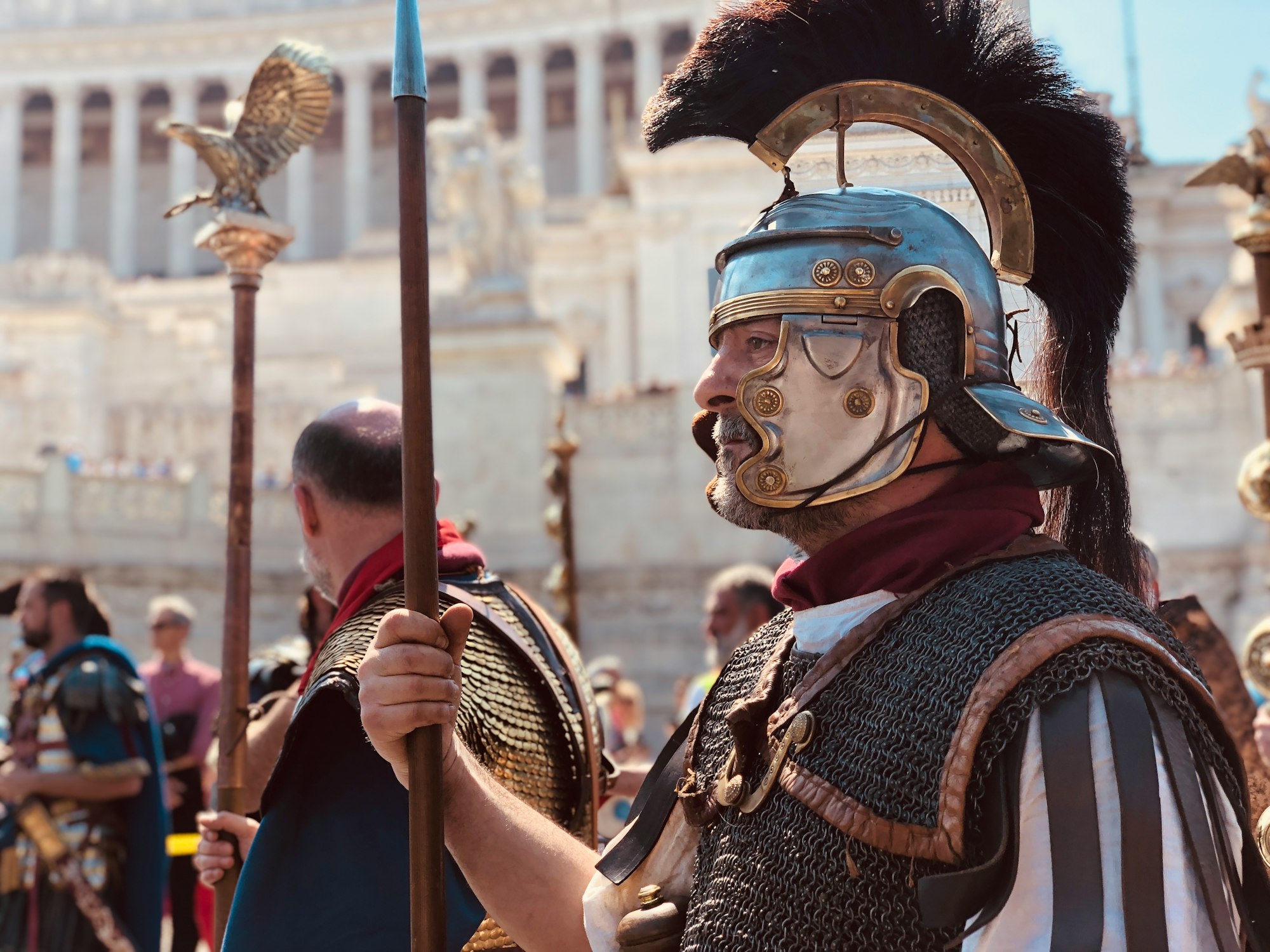Top Stories
Progress and Polytheism: Could an Ethical West Exist Without Christianity?
Christianity’s moral vision was not as revolutionary as a casual student of history might suppose. Nor did it equip Western society with a unique set of virtues that were unknown to the ancient world.


Imagine a Europe that resembles India. In Germany, France and England, in place of Romanesque or Gothic cathedrals stand temples devoted to a kaleidoscopic pantheon of local and state-sanctioned gods. In Italy, in place of the Renaissance duomo in the town piazza, one finds something resembling a still-complete temple to the Capitoline Triad that tourists might today visit in the ruins of Pompeii. Imagine Rome’s Pantheon devoted not to Christ, but, as the name implies, to all the gods. Imagine, in short, a Europe without Christianity.
India is a provocative analogue for this alternate history because its temples remain open and enthusiastically attended; its ancient religions, though much evolved, are still practiced; there is a continuity, however vivisected, between the present and the deep past. By comparison, Europe’s Christian character represents a historical schism, between new and old, of unfathomable proportion: The ancient pre-Christian world of the west, though spectacular in its achievements, is a cultural enigma to us.
In our collective understanding of western history, Christianity stands out as a kind of sui generis cultural event, arising like an avenger to challenge the depredations of the backwards Roman world out of which it sprang. But Christianity’s moral vision was not as revolutionary as a casual student of history might suppose. Nor did it equip Western society with a unique set of virtues that were unknown to the ancient world.
When applying hindsight, it is always easy to assume that the path of history was the inevitable path. And yet, history is contingent upon millions of unanticipated consequences. This is why Niall Ferguson has long advocated for the place of counterfactual history, in part as a means to appreciate the importance of what actually did happen. Certainly, it is a useful lens through which to consider Christianity—even if its cultural triumph during the medieval period was so totalizing as to make it almost (but not quite) impossible to envisage a West shorn of its influence.
The issue is worth discussing in light of Jordan Peterson’s prominently expressed argument that the advent of Christian teachings was both a morally necessary and inevitable step in the development of western thought. Peterson’s arguments resemble those espoused by popular historian Tom Holland, the author of bestselling books chronicling the Roman Republic and the travails of the Julio-Claudian dynasty. In a recent podcast, Holland disavowed his formerly expressed conviction that modern Western values could be derived from Greco-Roman culture. Christianity is presented, in his telling, as a social miracle. For Holland, we are not the moral heirs of Caesar, a rapacious warlord, but of Christ and Paul.

There are obvious rebuttals that might be made to this argument, at least as Holland puts it in the clip linked above. Medieval and early-modern Christian societies were rapacious and genocidal in their war efforts; Christian societies have harboured atrocious attitudes towards minority populations (especially Jews), and often have failed to meet the injunctions of the universalist ethics claimed to have been espoused by Christ and built upon by Paul; the argument that Christianity motivated a retreat from slavery grossly misunderstands and oversimplifies complex historical processes; and so forth. Indeed, every one of these points of rebuttal might be developed at essay or book length. But it is more important to address the heart of Holland’s critique, which is that, even putting aside the many lapses in the implementation of Christian doctrine, pre-Christian Greco-Roman civilization lacked something essential in its very moral outlook.
Holland asks: Why, for all their achievement, did the ancients never disavow slavery? Why did they never disown the ravages of military conquest in the name of glory? For Holland, the Roman Empire is a failed human experiment, a kind of abortive and failed West, fascinating in its ruin but hideous and repugnant in its splendour. But ought we likewise to impugn the entire Enlightenment in light of, say, the moral evil of colonial conquest? Or write off the entire twentieth century on the basis of totalitarianism and industrial slaughter?

Holland might respond that Caesar’s wars were not aberrations, but were treated as par for the course by his subjects: They went unchallenged by the populace and assimilated into the Romans’ conception of themselves as mighty conquerors. In truth, however, Roman literature also is full of self-criticism. Writers such as Tacitus often were so scornful of Roman imperialism that they would invent long and discursive anti-imperial speeches for their barbarian characters to recite, as though they were impugning the ravages of the Roman war effort on the floor of the Curia itself.
Holland’s view, like Peterson’s, diminishes the diversity of thought present in Greece and Rome. More insidiously, it robs moderns of a proper sense of our ethical and philosophic inheritance. It is only with hindsight that Christianity might appear as a crucial historical fact in the causal chain leading to the ethical insights of the Enlightenment (or, more specifically, the abolition of slavery). The ethical intuitions ascribed to Christianity already were present in other widely followed ancient beliefs, sometimes in far more rigorously developed form.

For example, the second century Stoic Hierocles posited an early form of “cosmopolitanism,” whereby the ego, the ‘I’ at the centre of our ethical life, was enfolded by concentric circles of moral concern. The closer the circle to the centre, to the I, the more demanding on our affections its subjects tend to be. The family was closest, and eventually one would reach all humankind in the outermost circle. For Hierocles, the goal of ethics encompassed the gradual extension of our sympathies to ever more distant circles of concern.
It is true that these insights did not lead the Stoics to condemn slavery—even if, in a general sense, the ethical universalism explicit in Stoic philosophy theoretically encompassed all human beings regardless of status or creed. And in this failing, the Stoics were morally deficient. But then again, the early Christians didn’t condemn slavery either.
In its pure ethical form, Stoicism actually expresses a less contingent attitude toward the object of ethical concern than does Christianity. As the scholar Runar Thorsteinsson has argued, the ethical character of early Christianity as expressed through the writings of Paul and in 1 Peter are best conceived as urging obedience and toleration toward non-Christian society, but advise a more generous ethical dispensation only toward fellow believers. The point here is not that early Christianity was particularly morally deficient—merely that it was not extraordinary in the context of the ethical beliefs and arguments known to educated people in the first, second and third centuries CE.
The ethical character of Stoicism was generally informed by a high regard for virtue—in particular, justice, temperance, courage and practical wisdom. Stoic happiness consists in applying these virtues in everyday life and attempting to live them to the best of one’s abilities. As philosopher Massimo Pigliucci argues in his recent popular exegesis on Stoicism, what was important for Stoic thinkers was not the attitude one had toward the gods, per se, but the attitude one exhibited in everyday life, in light of the inevitable suffering that would occur throughout.

Therefore, to read the Stoic Marcus Aurelius is not to find consolation in a cosmic sense, but to find practical wisdom joined with a gentle acceptance of impermanence. “Look behind you at the huge gulf of time,” Aurelius says. “In this perspective, what is the difference between an infant of three days and a Nestor of three generations?” It is this vision, both pessimistic (though it must be said that Aurelius was more pessimistic than most) yet morally upright, with human beings conceived as the centre of the moral universe, alone, and possessed of logos (an attitude that compelled Flaubert to remark that “the melancholy of the antique world seems to me more profound that that of the moderns…no crying out, no convulsions—nothing but the fixity of a pensive gaze”).
For Marguerite Yourcenar, whose Memoirs of Hadrian poignantly captures this mood, the period of the second century CE, when Roman Stoicism was at its height, represented a moment of poise, in which philosophy was at its most naked, unconstrained by dogma and open to the sad character of a world where, for many Romans, human reason and not the superstitio of religion acted as arbiter between their civilization and the wider cosmos.
Can it be said that Christianity improved upon this world? Did its spiritual consolations somehow spur society toward a more ethical future, or did they kill the impulse toward truth telling at the heart of Greco-Roman Stoicism, and thereby further derange a society that, by the fourth century, would become worn out by war, pestilence and almost complete political collapse?

In championing the latter view, psychologist Steven Pinker has argued that true ethical progress has been a recent historical phenomenon, ultimately resulting from the triumph of rational ethical doctrine over the Catholic and then Calvinist superstitions of Christian dogma that held sway during the Enlightenment. In Pinker’s view of history, the Christian period was one of moral and political stagnation, thanks in part to its reliance on superstitious “revelation.”
Some commentators, including New York Times columnist Ross Douthat, a committed Catholic, have argued a middle ground, emphasising the “dialectic” of Enlightenment and counter-Enlightenment, in the hope of rescuing Christianity and saving something of its ethical impact and moral relevancy. Either extreme no doubt harms any search for an honest interpretation of history, and Douthat is correct that the actual history of Enlightenment thought should not summarily discount or deny the importance of Christian perspectives.
On the other hand, it is also true that while Christianity did codify much of the ethical insight provided by ancient Greek thought, it also cast a damnatio memoriae— condemnation of memory—over the rigorously open “pensive gaze” of Marcus Aurelius. In doing so, it closed the gates of history on one of the most creative and morally experimental periods in philosophy. The Roman emperor Justinian took this process to its end point in 529 CE, when he shuttered the Academy in Athens, making the cultural conquest of Christianity complete.
To return to my counterfactual premise, imagine again a Europe of temples and sandals. But this is not the world of the second century. It is an imaginary twenty-first century world in which races live (more or less) in harmony, in which slavery has been abolished and indeed never took on its hideously racialized form. Imagine a world in which Epicureanism and Stoicism continue to flourish, modern physics is practiced at the Museum of Alexandria, the Mediterranean basin is united under a single government, smartphones are kept in toga pockets, and philosophy continues to be practiced as a commonplace of education.
Is it so hard to imagine that this world could have come into being without the cultural dominance of Christianity? I submit that it is not. The ancient world contained within it the possibility for moral change. But the ancient experiment was aborted because it was eventually deemed unacceptable to practice any doctrine except that espoused by Peter and Paul.
To posit that the ancient world, deprived of Christianity, contained within it no moral prospect is to deny history. It also serves to cast aside the great achievements of the Greeks and the Romans, who, for all their flaws, saw clearly that reality could not be understood without the same steady and pensive gaze that Christians focused on their own souls. For we are all ultimately obliged, as Flaubert says, to stare into the night sky, the “immutable ebony” of the unknown world around us and wonder if there really is a god, or if we are compelled to face everything alone, with only each other and our reason as a guide.






